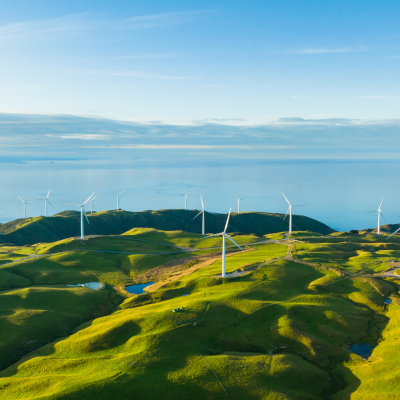Indonesia’s largest privately owned steelmaker will spend more than 1 trillion rupiah ($66.8 million) to increase production as demand for steel swells, in part due to construction projects related to the relocation of key government functions to the island of Borneo, Gunung Raja Paksi’s top executive told Nikkei Asia.
“We expect demand from Indonesia’s capital relocation to Nusantara,” GRP President Abednedju Giovano Warani Sangkaeng said in a recent interview. The company sees “opportunity from the infrastructure there.”
Although GRP has yet to secure any contracts for the project, Sangkaeng expects the move from Jakarta to Nusantara to contribute to an increase in overall domestic demand.
GRP, which went public in 2019, mainly makes steel products for buildings and infrastructure. To meet increasing demand, it plans to raise its steel production capacity by nearly 40%, to 3 million tons, by the end of next year at its only mill, in Cikarang, some 40 km east of central Jakarta and home to numerous factories.
The Indonesian government plans to relocate the capital in 2024 as it aims to promote economic growth beyond the country’s most populous island of Java. Officials also see the change as easing congestion in Jakarta, a sinking megacity of some 10 million people that suffers from chronic pollution.
Nusantara is envisioned as a “green and smart global city” that will be developed in stages running up to 2045.
Indonesia last year pledged to achieve net-zero emissions by 2060.
The Indonesia Iron & Steel Industry Association estimates that steel demand in Southeast Asia’s largest economy will rise 7.6% in fiscal 2022 from the previous year. GRP expects the Nusantara development to have a multiplier effect.
Globally, the steel situation is less rosy. Crude production in May dropped 3.5% from the same month last year, marking the 10th consecutive month of year-on-year decline, according to the World Steel Association. The decline is the result of the pandemic, semiconductor shortages and Russia’s invasion of Ukraine.
But there is cause for optimism in Indonesia. “When we look at the trend, more people are moving to urban area[s] from rural places,” contributing to housing demand, Sangkaeng said.
The company makes almost all of its sales in the rapidly growing country, which with more than 270 million people is the world’s fourth most populous.
In 2021, GRP posted net income of $62 million, bouncing back from a loss of $8.9 million in 2020, when the pandemic slammed the industry.
But looking ahead, he said domestic steel demand “will increase as the pandemic is now fading out.”
Last year foreign sales accounted for about 5% of the company’s total. But Sangkaeng expects the ratio to quadruple this year thanks to increasing demand from Australia, New Zealand and elsewhere in Southeast Asia.
In China, mills are reducing output as the government pressures the steel industry to cut carbon dioxide emissions. Production in the world’s top steelmaking country last year fell 3% from the previous year. “[That] is an opportunity for GRP and other steel producers in Southeast Asia,” Sangkaeng said.
Amid widespread and escalating global concern for the Earth’s climate, GRP last year decided to buy 10,000 tonnes of carbon credits at $8 per tonne. “We do see more customers considering environmentally friendly products,” Sangkaeng said. “GRP sees an opportunity in this and is looking to create a road map that aligns with global needs.”
This article was published in asia.nikkei.com with the title “Indonesian steelmaker senses opportunity in capital relocation”. Click to read:














